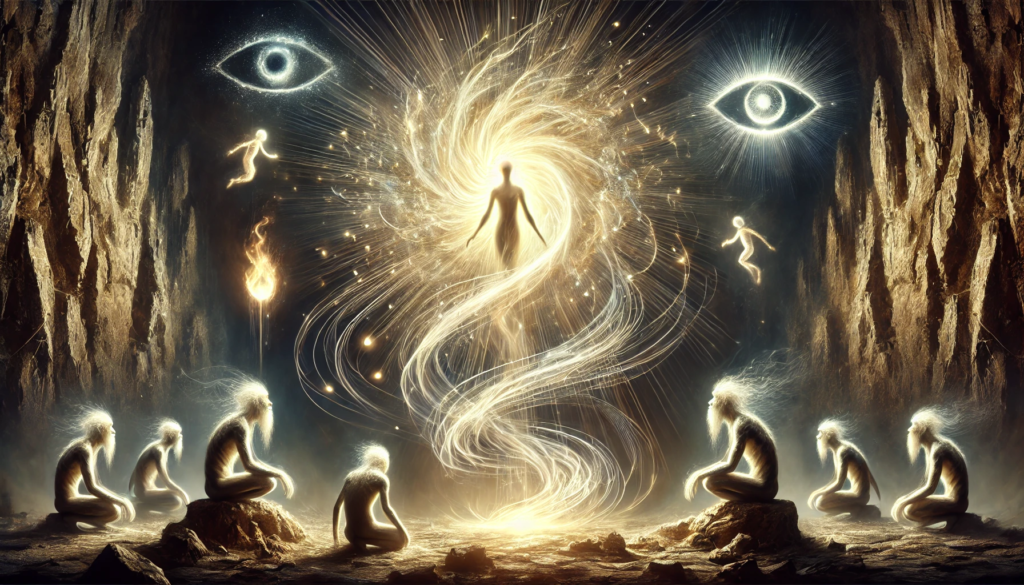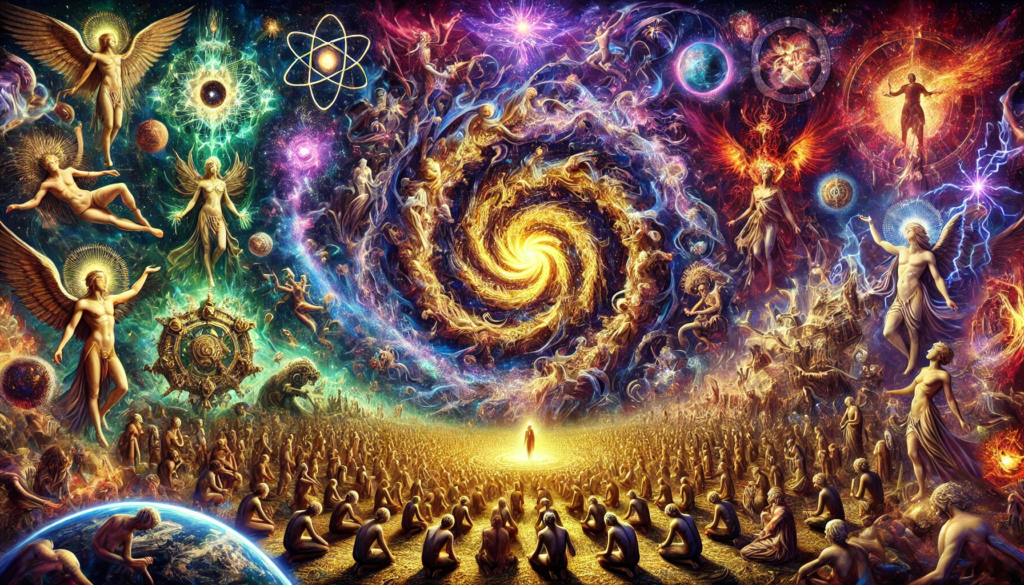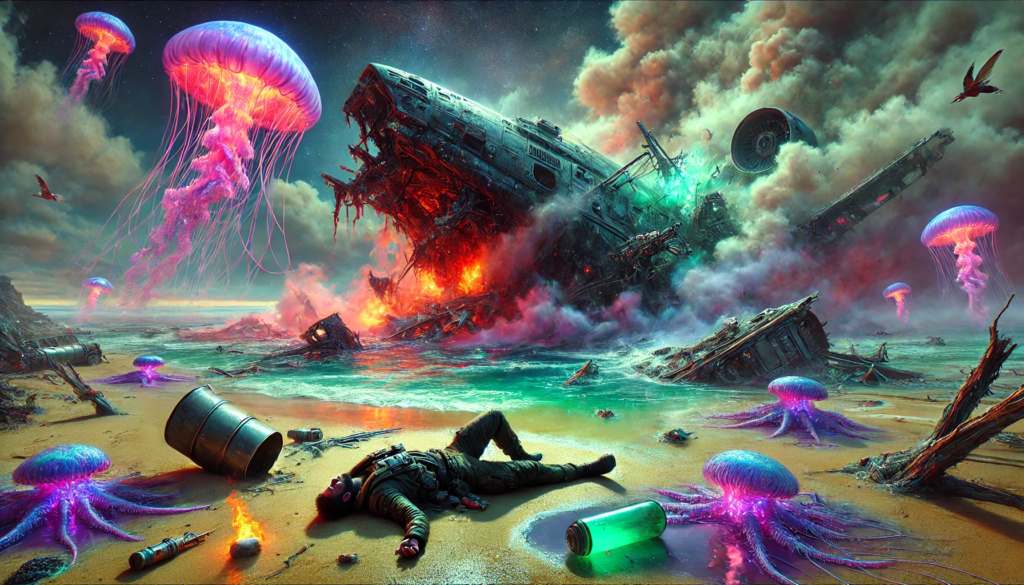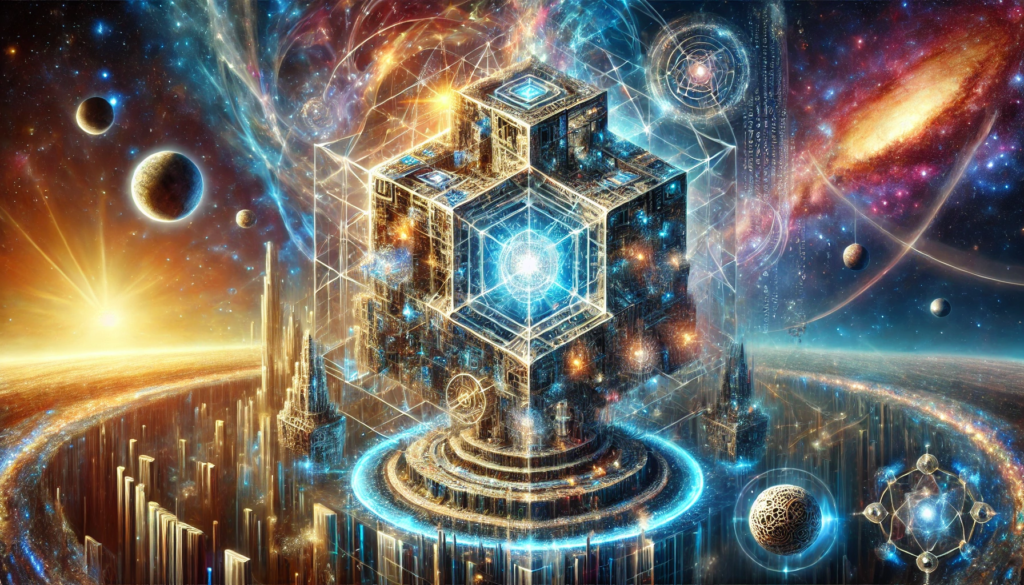Contextual note, psychologically quasi-archaeological in nature: this piece, written in 2020 and re-published here, is included in Deinós as a reminder that many of my obsessions already coursed through my mind back then. Far from fading, they have grown stronger. It is worth noting that this text was never meant to be a book, not even a short story—it was simply an exercise.
Preface
The prologue was unplanned. I wrote the first line of Chapter One at around 11:30 a.m. on July 11, 2020. By the time I finished the fourth paragraph and reviewed the previous ones, I realized I needed to explicitly reflect on my relationship with God. Spurred by this burst of honesty about both the content and creative process, I began writing the prologue at 11:50 a.m. the same day.
Writing a prologue for one’s own work is not a common practice—or at least, it wasn’t in Cervantes’ time. However, that master chose to “self-prologue” his Don Quixote, defying the conventions of his era. He sought to challenge the prevailing trends of erudition and stand apart from them. I do not aspire to such heights, but like Cervantes, I aim to be sincere.
In this spirit of sincerity, I confess that I marvel at the audacity of this attempt and wonder what I will think of my relationship with God in the years to come, as the journey continues. It is possible I will be embarrassed by what I’ve written; it is also possible I will laugh at it. But never, under any circumstances, allow me to destroy it.
Prologue
The man writing these lines could declare himself powerless to understand God: from this impotence, he could neither affirm nor deny God’s existence and would find himself mute, maimed, and blind. He would not attempt to comprehend God, much less explain or imagine Him.
From this impotence, this man would turn to dust after being nothing more than a sigh; he would leave no trace in the hearts of others and would fail a son yet to be known. From this impotence, this man would not even truly live.
But the man writing these lines has chosen the path of rebellion. He has chosen freedom.
Chapter One
God, understood as the All, exists beyond human language. He always was, is, and will be; He required no understanding, requires none now, and never will. He needed no expression, needs none now, and never will. God is the ineffable totality of the cosmos.
Humanity, on the other hand, is contingent and finite. Were God and man to meet, they would be like strangers exchanging glances across an impossible abyss. The All and humanity are mutually alien, and more importantly, irrelevant to each other.
Yet none of this stopped humanity from thinking about God. From just a hundred minds, from just a hundred flashes of thought, from just a hundred meditations turned into tentative murmurs and whispered prayers, one day a hundred men gave birth to the same god on a young planet. A hundred names, spoken for the first time, like a brief note in the monotonous melody of eternity, attempting to express a shared longing, answer a shared question, satisfy a shared need. That day, humanity sought to assign a benevolent meaning to time; that day, humanity faced the reality of death; that day, it understood how to overcome death and crafted its first tool to achieve this.
That day, a god was born. The same cry arose from a hundred guttural voices, expressing a shared idea.

From that moment… well, from that moment, things spiraled into madness.
That very god soon fractured into hundreds. At times, they became pantheons of capricious and petty deities; other times, gentle and benevolent ones; often, quarrelsome, promiscuous, and cruel ones. On other occasions, they took the form of “Mother” gods, “Father” gods, or perhaps hermaphroditic ones (it’s not unthinkable)—but always unique, always true, and always with monopolistic aspirations. Frequently, eternal gods with a thousand, two thousand, even three thousand faces emerged, each crafted for a specific moment of life, whether tied to hormonal frenzies, cellular decay, or new, convoluted legal codes. In notable episodes, gods were invoked as spiritual cover for orgiastic or murderous excesses. Records remain of god-men, crafted in eras when well-meaning skeptics declared “God is dead,” only for others, convinced of their superiority, to create god-men who denied the divine and the transcendence of spirit, yet were capable of devastating vast lands and subjugating entire peoples (though, truth be told, these god-men often had a comically grotesque appearance, much to their detriment).
In summary: humanity’s history lurched through periods of varied monotheisms, festive polytheisms, cosmic conflicts of varying scales, divine cold wars, and intersections of magical and dialectical paganisms. All this was accompanied by music, strife, and no small amount of boredom and fatalism. Amid this pandemonium, some men behaved quite well; others, decidedly poorly. Yet most simply died, shrugging off the chaos, having avoided significant mystical or metaphysical experiences, and dedicating their lives to two healthy activities: eating and copulating.

But one day, everything changed: humanity and the other intelligent species of the galaxy managed to impose some order on the chaos. When the last divine census recorded a total of 7.97×(10^19,782,364) gods across the known universe, some wise individuals realized it was time to regulate the thorny issue of divinity so that the conscious beings of the galaxy could trade in peace and enjoy practical, relatively hygienic spiritual certainty.
It is in this prosperous era that we find our hero, Neon Hermes (Hermes for short, Hermecito to friends), gracelessly piercing the atmosphere of a nameless rock in a forgotten arm of a fetid galaxy. His scuffle with bumbo-zirconian pirates has left his ship in ruins. With his INC condenser (a second-hand bargain) fried, the choice is simple: land anywhere or perish in the frozen vacuum of space.
Contact in three, two, one…
A thick bank of leaden clouds, then water, algae, a beach. Dirt and crustaceans surround the smashed nose of the ship, with a giant chicken-legged jellyfish sprawled against the hull, slowly sliding off, dripping phosphorescent goo from its once-majestic body.
The hatch hisses open with vaporous sighs and flatulent decompressions. Out stumbles Hermes, collapsing onto the sand and losing consciousness.

In a fleeting moment, from the depths of his mind, our hero glimpses three nebulous, holographic figures leaning sternly over him. The final emanations of the Unified Divine Essence (UDE), synthesized and emitted at random by the Gnosis Machine (GM):
There stands 22/X-Justice.
There stands 09/Y-Love.
There stands 88/Z-Soul.
Behold the JusLovSo Trinity: both distant origin and immediate cause of Hermes’ journey as an intergalactic vagabond in search of a home.

